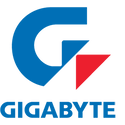
"Godfather of AI" Geoffrey Hinton Departs Google, Voices Concern Over Dangers of AI
Geoffrey Hinton, British-Canadian psychologist, computer scientist, and 2018 Turing Award winner in deep learning, has departed the Google Brain team after a decade-long tenure. His research on AI and neural networks dating back to the 1980s has helped shape the current landscape of deep learning, neural processing, and artificial intelligence algorithms with direct and indirect contributions over the years. 2012's AlexNet, designed and developed in collaboration with his students Alex Krizhevsky and Ilya Sutskever, formed the modern backbone of computer vision and AI image recognition used today in Generative AI. Hinton joined Google when the company won the bid for the tiny startup he and his two students formed in the months following the reveal of AlexNet. Ilya Sutskever left their cohort at Google in 2015 to become co-founder and Chief Scientist of OpenAI; creators of ChatGPT and one of Google's most prominent competitors.
In an interview with the New York Times Hinton says that he quit his position at Google so that he may speak freely about the risks of AI, and that a part of him regrets his life's work in the field. He said that during his time there Google has acted as a "proper steward" of AI development, and was careful about releasing anything that might be harmful. His viewpoint on the industry shifted within the last year as Microsoft's Bing Chat took shots at Google's core business, the web browser, leading to Google being more reactionary than deliberate in response with Bard. The concern arises that as these companies battle it out for AI supremacy they won't take proper precautions against bad-faith actors using the technologies to flood the internet with false photos, text, and even videos. That the average person would no longer be able to tell what was real, and what was manufactured by AI prompt.
In an interview with the New York Times Hinton says that he quit his position at Google so that he may speak freely about the risks of AI, and that a part of him regrets his life's work in the field. He said that during his time there Google has acted as a "proper steward" of AI development, and was careful about releasing anything that might be harmful. His viewpoint on the industry shifted within the last year as Microsoft's Bing Chat took shots at Google's core business, the web browser, leading to Google being more reactionary than deliberate in response with Bard. The concern arises that as these companies battle it out for AI supremacy they won't take proper precautions against bad-faith actors using the technologies to flood the internet with false photos, text, and even videos. That the average person would no longer be able to tell what was real, and what was manufactured by AI prompt.

































